Abstract
1. Gastric acid and pancreatic bicarbonate and protein secretion as well as immunoreactive serum gastrin and pancreatic polypeptide concentrations in response to a meal and secretin have been measured before and after infusion of bovine pancreatic polypeptide or its C-terminal hexapeptide. 2. Liver extract meal kept in the stomach at pH 5.5 (by intragastric titration) produced a marked increase in gastric acid and pancreatic protein secretion accompanied by a rise in serum gastrin and pancreatic polypeptide levels. Exogenous bovine pancreatic polypeptide caused little change in gastric secretion and serum gastrin but resulted in a profound suppression of pancreatic secretion. 3. Ordinary feeding a liver meal produced a marked increase in pancreatic bicarbonate and protein secretion that was dose-dependently inhibited by bovine pancreatic polypeptide or its C-terminal hexapeptide, the degree of inhibition being closely correlated with the increments in plasma pancreatic polypeptide. 4. Bovine pancreatic polypeptide and its C-terminal hexapeptide also inhibited secretin and caerulein-induced pancreatic secretion in a dose-dependent manner. 5. This study shows that bovine pancreatic polypeptide inhibits pancreatic secretion at least in part by acting directly on the exocrine pancreas and that its biological activity resides in its C-terminal hexapeptide fragment.
Full text
PDF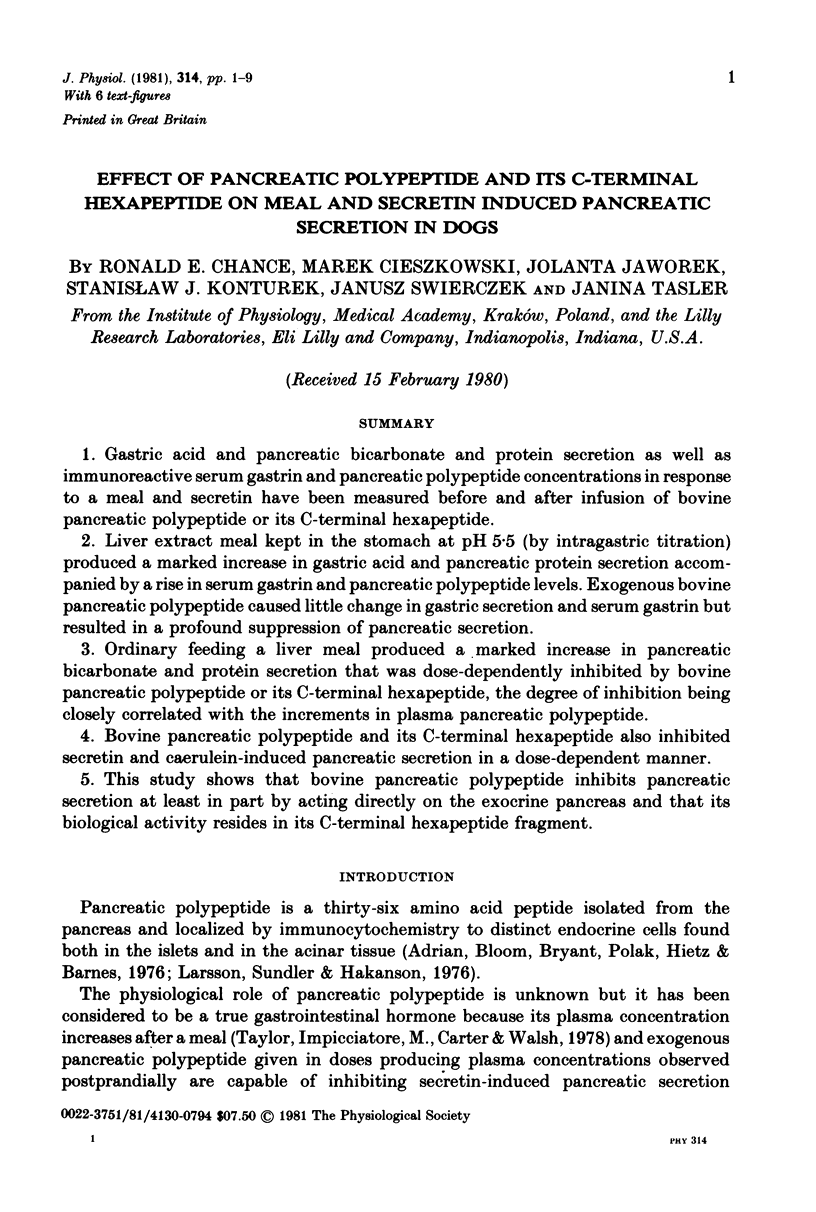
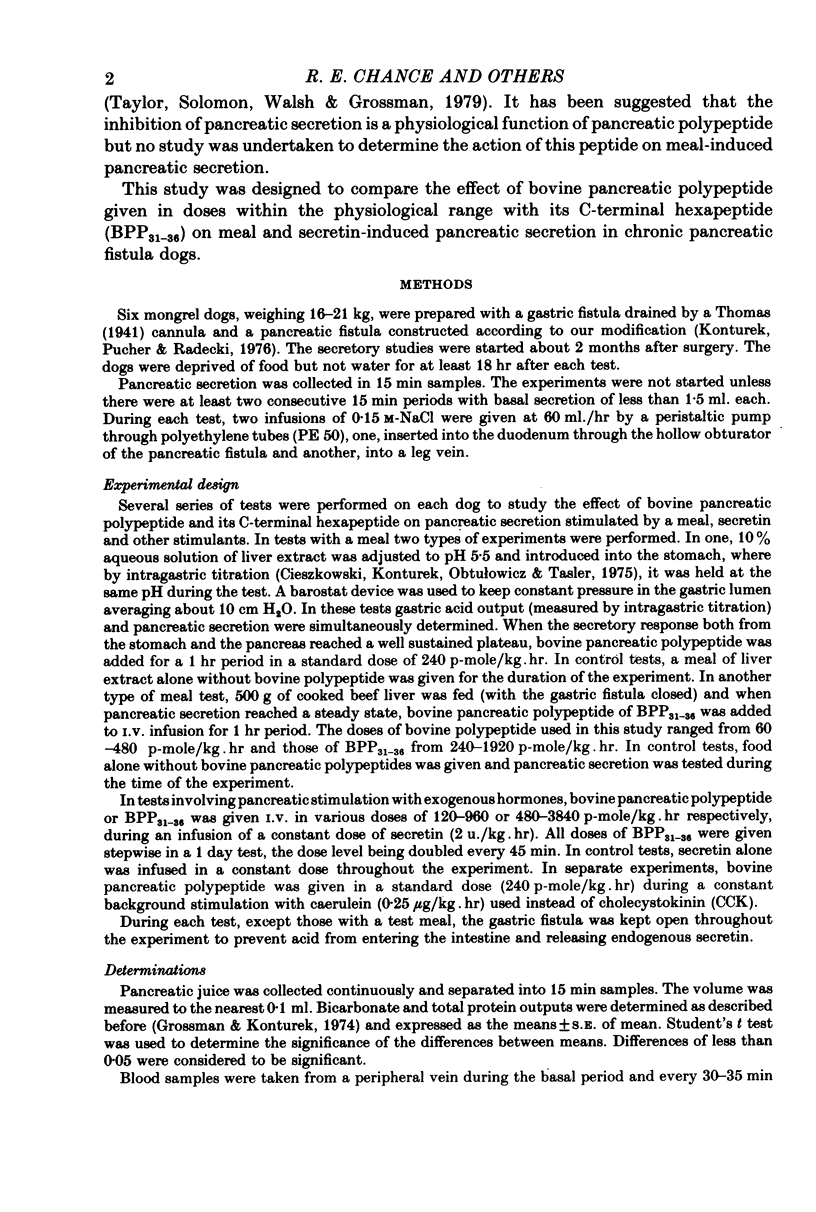
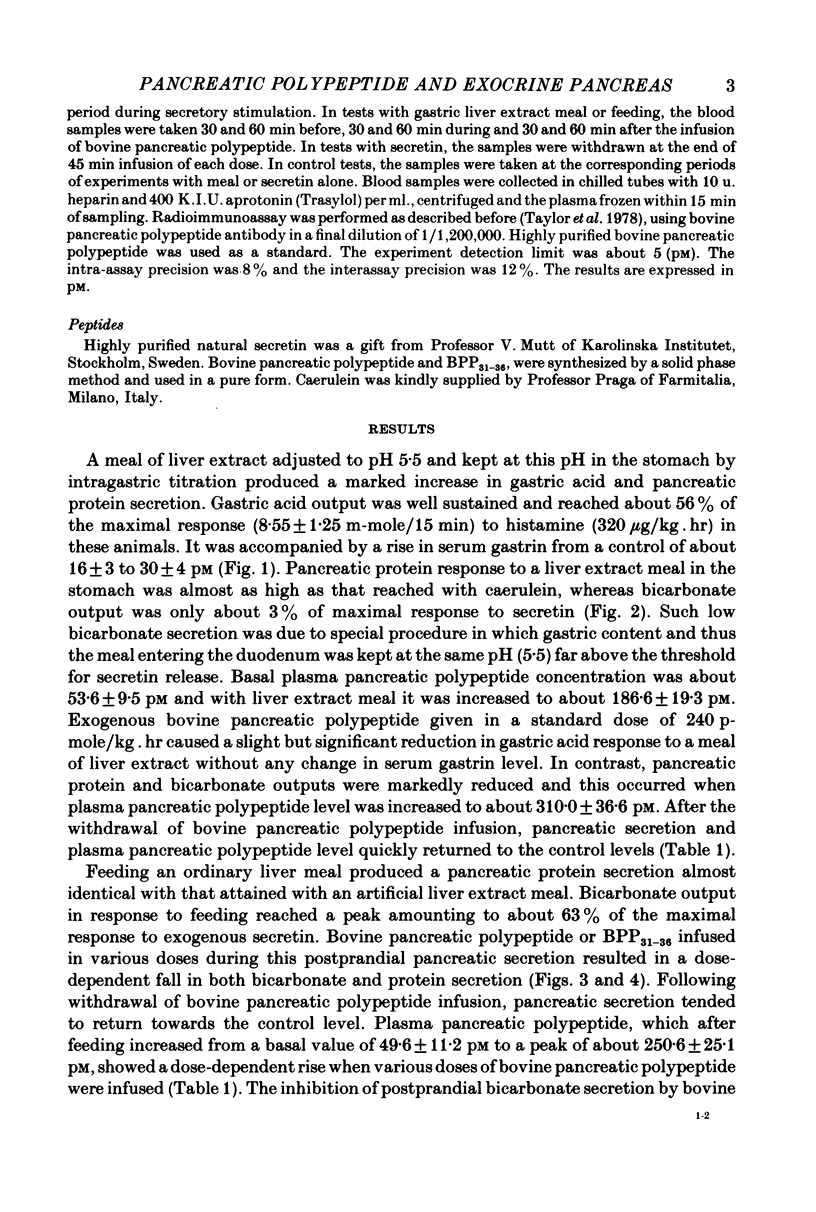
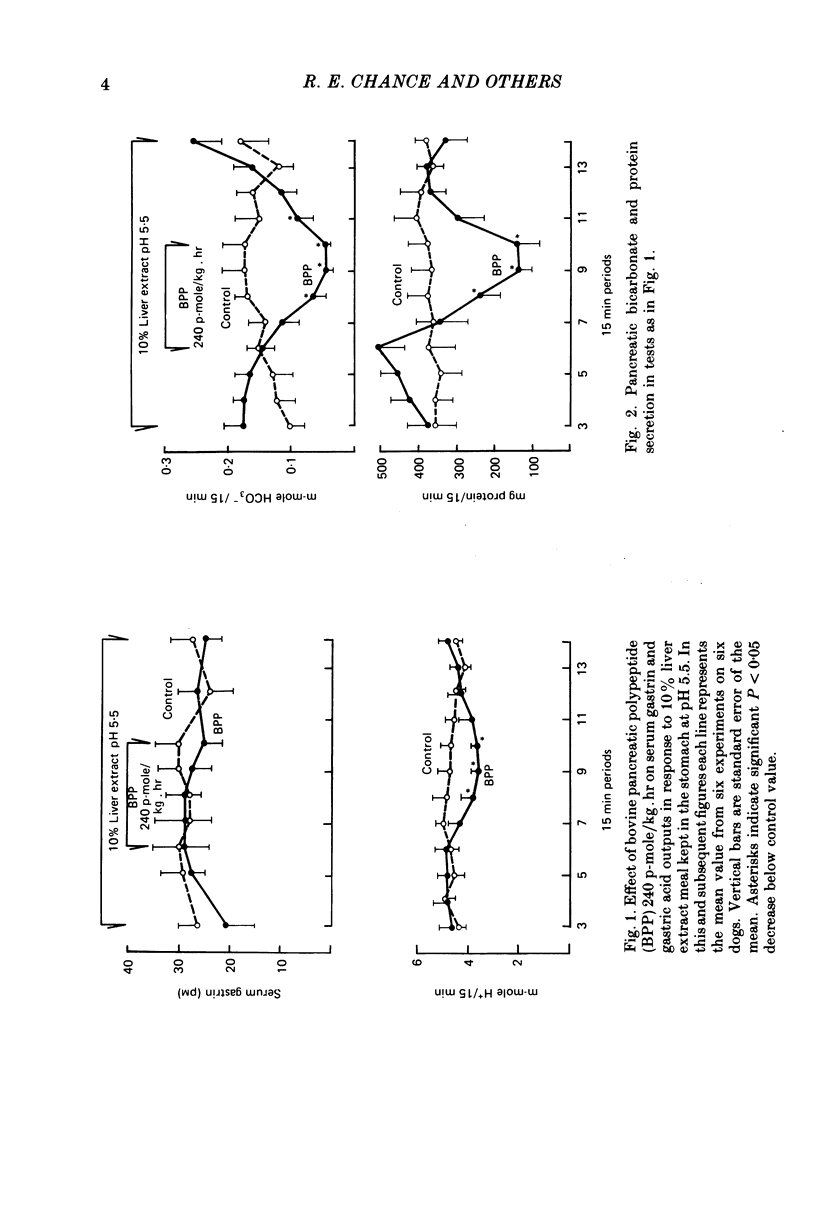

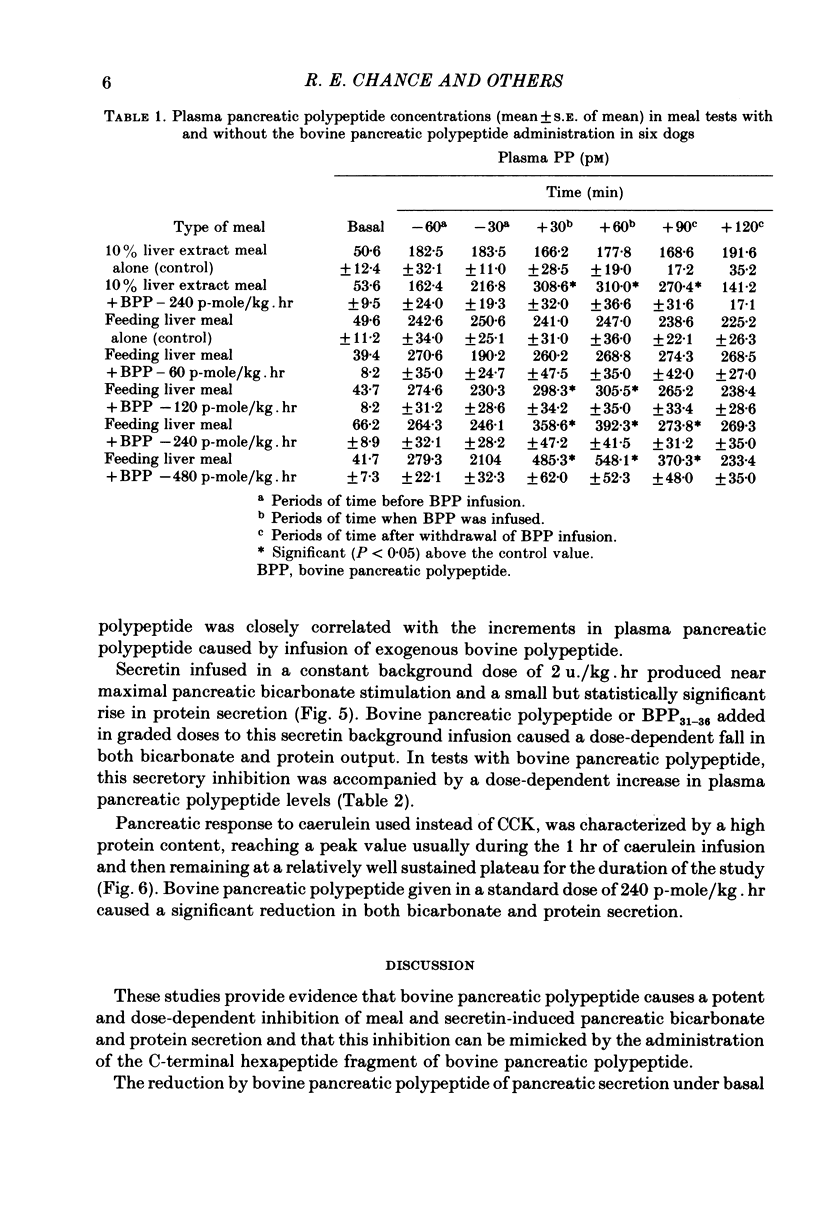
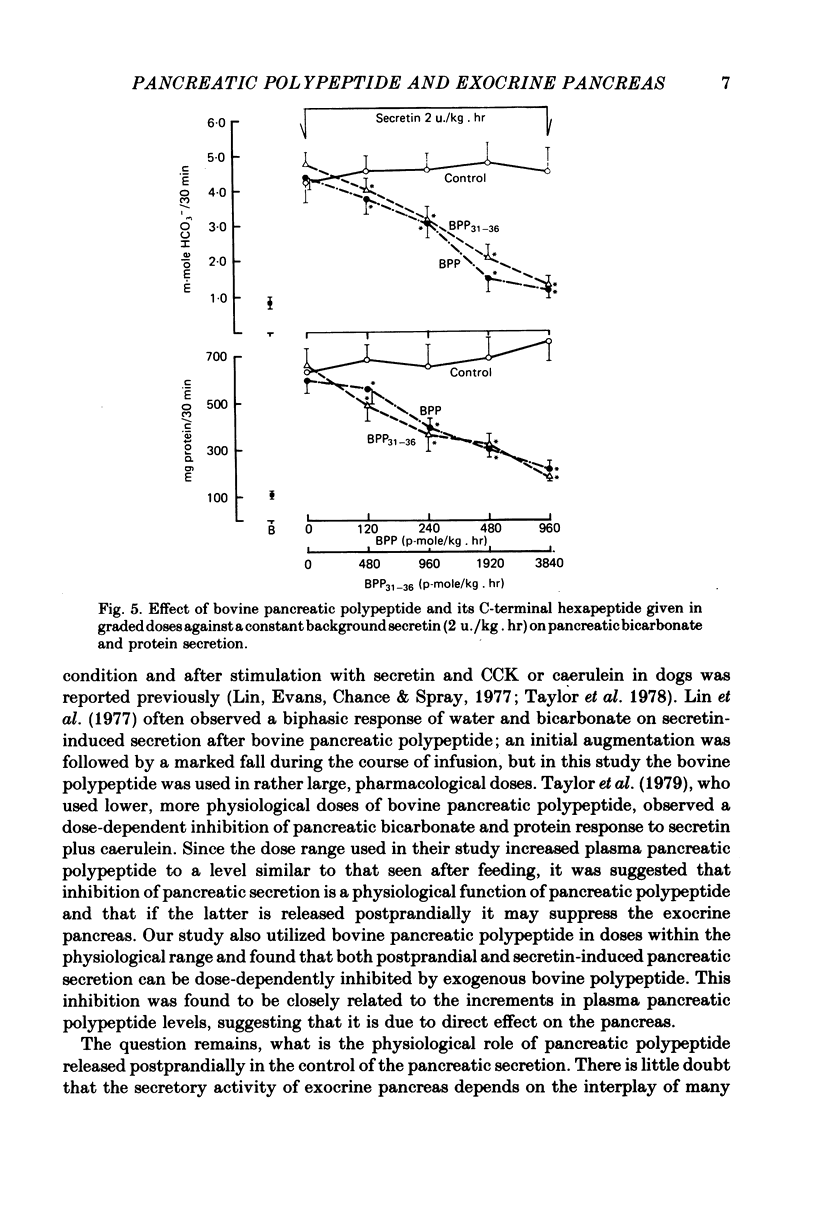
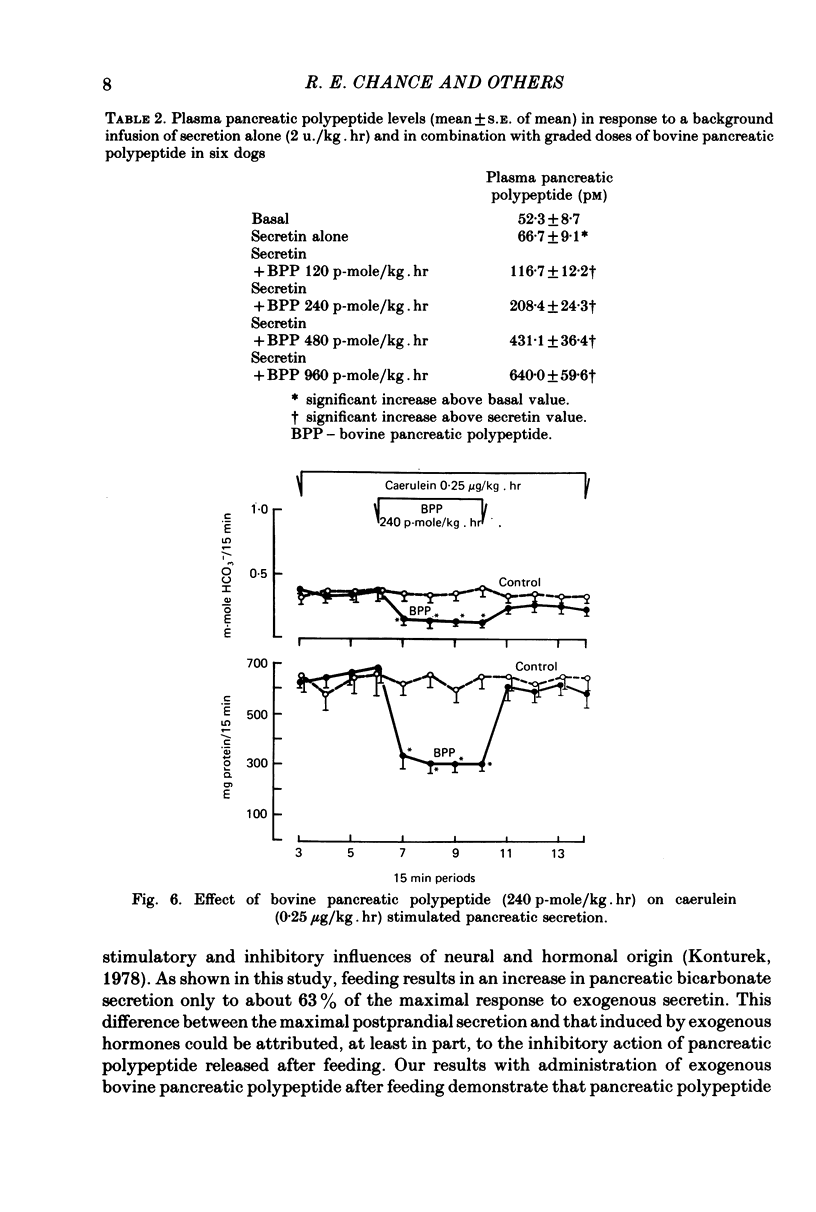
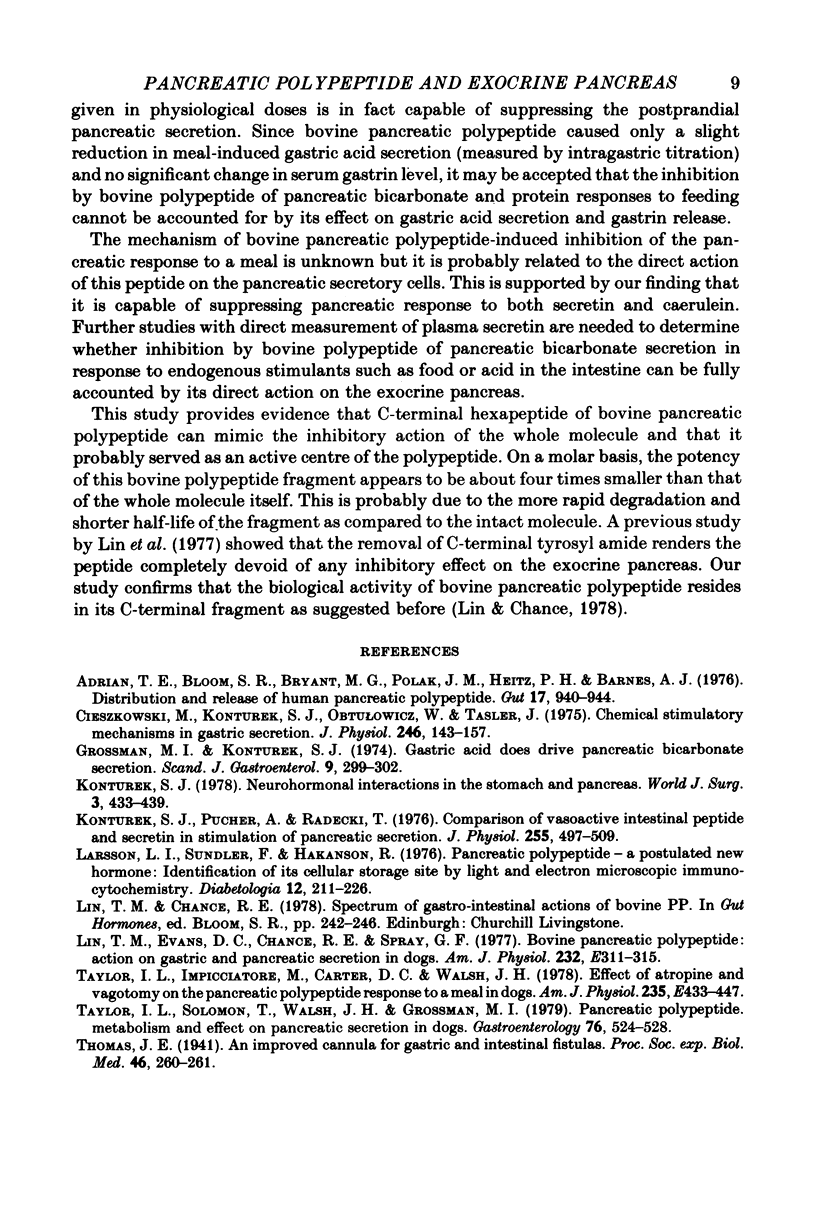
Selected References
These references are in PubMed. This may not be the complete list of references from this article.
- Adrian T. E., Bloom S. R., Bryant M. G., Polak J. M., Heitz P. H., Barnes A. J. Distribution and release of human pancreatic polypeptide. Gut. 1976 Dec;17(12):940–944. doi: 10.1136/gut.17.12.940. [DOI] [PMC free article] [PubMed] [Google Scholar]
- Cieszkowski M., Konturek S. J., Obtulowicz W., Tasler J. Chemical stimulatory mechanism in gastric secretion. J Physiol. 1975 Mar;246(1):143–157. doi: 10.1113/jphysiol.1975.sp010883. [DOI] [PMC free article] [PubMed] [Google Scholar]
- Grossman M. I., Konturek S. J. Gastric acid does drive pancreatic bicarbonate secretion. Scand J Gastroenterol. 1974;9(3):299–302. [PubMed] [Google Scholar]
- Konturek S. J. Neurohormonal interactions in the stomach and pancreas. World J Surg. 1979 Aug 31;3(4):433–439. doi: 10.1007/BF01556102. [DOI] [PubMed] [Google Scholar]
- Konturek S. J., Pucher A., Radecki T. Comparison of vasoactive intestinal peptide and secretin in stimulation of pancreatic secretion. J Physiol. 1976 Feb;255(2):497–509. doi: 10.1113/jphysiol.1976.sp011292. [DOI] [PMC free article] [PubMed] [Google Scholar]
- Larsson L. I., Sundler F., Håkanson R. Pancreatic polypeptide - a postulated new hormone: identification of its cellular storage site by light and electron microscopic immunocytochemistry. Diabetologia. 1976 Jul;12(3):211–226. doi: 10.1007/BF00422088. [DOI] [PubMed] [Google Scholar]
- Lin T. M., Evans D. C., Chance R. E., Spray G. F. Bovine pancreatic peptide: action on gastric and pancreatic secretion in dogs. Am J Physiol. 1977 Mar;232(3):E311–E315. doi: 10.1152/ajpendo.1977.232.3.E311. [DOI] [PubMed] [Google Scholar]
- Taylor I. L., Solomon T. E., Walsh J. H., Grossman M. I. Pancreatic polypeptide. Metabolism and effect on pancreatic secretion in dogs. Gastroenterology. 1979 Mar;76(3):524–528. [PubMed] [Google Scholar]


